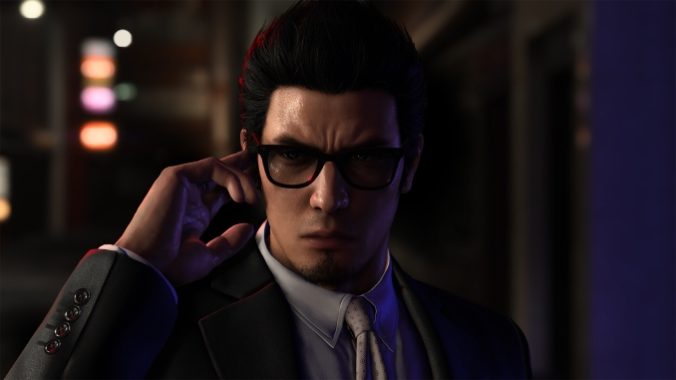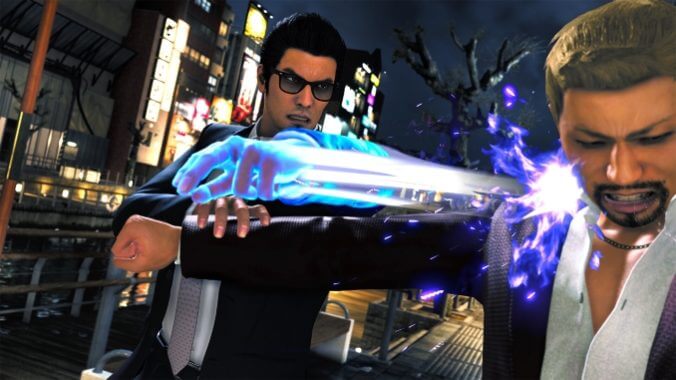Like A Dragon Gaiden: The Man Who Erased His Name Is A Worthy, But Safe, Spinoff

At about 10 hours into Like A Dragon Gaiden: The Man Who Erased His Name, I was thoroughly bewildered. I had taken some time away from the main story to clear up some of the side objectives that the Like A Dragon series typically has, yet I thought I was making decent enough progress to be further than the second chapter. While I would eventually find that this confusion was due to the fact that this spinoff title only features a handful of lengthy chapters, I’ve simultaneously found that this isn’t an entirely uncommon experience with these games. Every time I’ve played one of Ryu Ga Gotoku’s titles, there’s a quiet moment where I’m astonished at the depth of the world the studio’s built in a few short city blocks. Part of me wonders if that will ever get old.
Though it is shorter than most mainline entries, Like A Dragon Gaiden: The Man Who Erased His Name is just as worthy of your time and emotional investment as any other title. Following Kiryu after the events of Yakuza 6: The Song of Life—and playing parallel to the events of Ichiban’s adventures in Yakuza: Like A Dragon—Like A Dragon Gaiden sees everyone’s favorite ex-yakuza turn agent for a faction known as the Daidoji. As part of their deal, “Kiryu” is dead, and adopts the hilarious new moniker, Joryu, which every character with more than two brain cells sees through for the next 20 hours or so. It doesn’t help that his only disguise is his agent suit and a pair of shades I’d hardly call transformative, but seeing a straight-laced Kiryu continually lie in the face of overwhelming evidence as to his true identity never stopped getting laughs out of me through the entirety of Like A Dragon Gaiden. Because it would be simply the most foolish thing in the world to send Kiryu to do jobs as Joryu in his old stomping grounds, Like A Dragon Gaiden instead revisits Sotenbori in Osaka, where Kiryu once again finds himself embroiled in the politicking of the yakuza. So as I’ve thoroughly outlined, Like A Dragon Gaiden is business as usual.
And that’s not really a bad thing. I said as much in my preview some months ago, but when things are going as swimmingly as they are for the current incarnation of the Like A Dragon games, it pays off to blend the old and new carefully. The structure of the game is much as it’s ever been and watching Sotenbori unfurl its surprises and hidden gems like Kamurocho and Isezaki-Ijincho before it never got old. Partaking in familiar diversions like golf and karaoke always warms the spirit, but so does beating down yakuza in the streets and underground arenas. A new setting for the series, the Castle, is posited as this sort of getaway where the most illicit activities and players in the underground partake in their wildest fantasies. The wealthy parade their wealth while riding stagecoaches hauled by naked, and presumably impoverished, debtors, whom they lash on the back. Here you can gamble, indulge in Gaiden’s limited customization, or partake in its most substantial side activity, the colosseum. The fights here range from the mundane and simple to the outlandish and difficult, and the systems around it (such as recruiting and training fighters who specialize in offense, defense, healing, etc.) signal depth, but what I appreciated most was how it served me as a training ground to hone my fighting in Gaiden’s two fighting styles and finally appreciate the series as a brawler.
I’ve played very few Like A Dragon games, which has given me little experience with the brawler aspects of the franchise. The only other mainline entry I’ve played was Yakuza: Like A Dragon, and besides that I’ve only ever completed another spinoff, Judgement. The latter is at least close enough an approximation of what I expect the games to feel like, and there was always a disconnect between myself and the gameplay in Judgement. I found it flashy and basic, and at least a little untenable for the length of the game, especially considering tensions always seem to rise through the plots of the series, upping the amount of fighting you need to do. Fighting quickly turned into a chore that I wanted little to do with. That’s absent in Like A Dragon Gaiden, whose two fighting styles—the crowd-focused Agent style and Kiryu’s more typical one-on-one Yakuza style—grow in depth quite proportional to your place in the story and how much you fight on the side in spots like the colosseum. In there in particular, I felt invited to sharpen my knowledge of each, as I was pitted in fights which sometimes locked you into one or stressed that you should switch between both as the fight evolved. Along the way, I found a fighting system with more depth than met the eye, and I’m glad to have finally clicked with it, even if I still prefer the turn-based system the franchise has newly adopted. And the truth also is that so many approaches to these kinds of different fighting styles are far more boring than they are in Gaiden. In Judgement, for example, the difference meant that you might make more sweeping kicks in one stance over another. In Gaiden, the Agent style comes with its own unique gadgets, like the laser lasso Spider gadget that let me fling enemies into one another to sweep through arenas. The Serpent gadget gave me rocket-propelled shoes that frequently allowed me to bulldoze through enemies to start an encounter. It’s about as ridiculous a fighting style as you’ve come to expect from Like A Dragon and the shorter runtime helps it feel fresh all the way to the credits.
